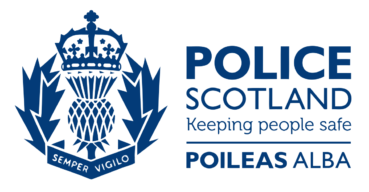This study looks at how UK police forces make use of video interpreting services to complete standard police procedures. Two frontline police services were examined: video relay service (VRS) calls to a Police Scotland’s force control room (FCR); and video remote interpreted calls (VRI) to a Police Scotland custody suite. Both contexts were identified as areas for potential VRS/VRI expansion by Police Scotland. The research questions focused on how co-operation was negotiated during a video-mediated interpreting interaction in a frontline policing context and how co-operation affected the delivery of the combined service.
To chart how co-operation was received or negotiated, this study combined Positioning Theory with Actor-Network Theory (ANT). Using this hybrid framework, this study traced the capacity and willingness each participant displayed as they assumed, negotiated, or challenged the shared rights or duties (an interactive position), and considered the role non-human entities (e.g. technology, policies, artefacts) had in shaping these positioning moves.
This study found a range of positioning moves that either work towards or become a co- positioning arrangement. The establishment of co-positions means different actors have established a unified group of rights and duties that are mutually shared. The findings reaffirm the challenges of remote communication, as well as which features of communication promoted by call handlers, custody sergeant and interpreters appear to be mutually effective for frontline policing interactions. The police participant and the interpreter have a shared objective: to learn about the citizen and to construct an understanding of the issue at hand. Issues still exist regarding knowing how to adapt standard police procedures or generic responses to become meaningful to someone who is a deaf BSL user. Interpreters will sometimes become involved in these matters, advocating the deaf person’s right to receive parity of service beyond the VRS/VRI call. By focusing on standard police procedures and understanding what works and why, we can identify where and when VRS/VRI services could be used to increase citizen access to other areas of police services.
This research was supervised by Prof Jemina Napier (Deputy of School and Head of Languages and Intercultural Studies at Heriot-Watt University) and Prof Nicholas R Fyfe (Director of Scottish Institute for Policing Research at the University of Dundee), in collaboration with Police Scotland and SignVideo.
Proximity interpreting: Day-to-day policing and delivering access for deaf citizens. Skinner, R. May 2018. https://policinginsight.com/features/analysis/proximity-interpreting-day-to-day-policing-and-delivering-access-for-deaf-citizens/
Proximity interpreting: day-to-day policing and delivering access for deaf citizens. Skinner, R. February 2018. Scottish Institute for Policing Research. https://blog.dundee.ac.uk/sipr/2018/02/proximity-interpreting-day-to-day-policing-and-delivering-access-for-deaf-citizens/




